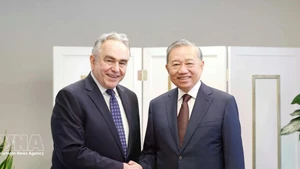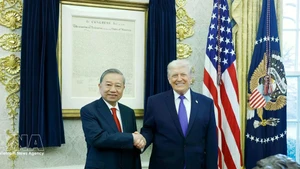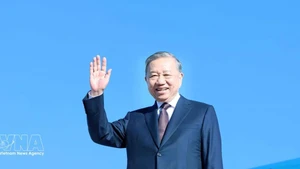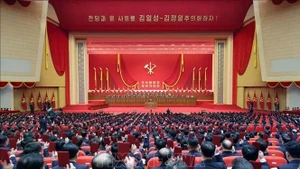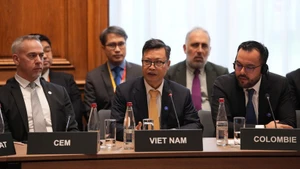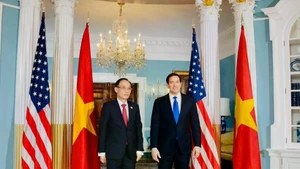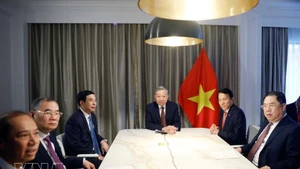Based on that good foundation, the State visit of Prime Minister Pham Minh Chinh to India has made an important contribution to bringing the bilateral relationship to a new period with deeper trust, understanding, and efficiency, meeting the aspirations of the leaders and people of both countries.
Trust, attachment, looking towards the future
Prime Minister Pham Minh Chinh is one of the first foreign leaders to pay a State visit to India since Prime Minister Narendra Modi’s third term re-election. The Indian Government attached great importance to and believed that the visit would bring strong momentum to the Vietnam-India relationship in the coming time. Therefore, the Government and people of India welcomed Prime Minister Pham Minh Chinh and the Vietnamese delegation with great respect and warmth.
The leader of the Vietnamese Government said that he witnessed the great achievements of the Ganges civilisation and the remarkable development of India, expressing his impression about Prime Minister Narendra Modi’s saying that “trust is the foundation for development”.
Prime Minister Pham Minh Chinh and Prime Minister Narendra Modi had a very successful meeting in the spirit of friendship, trust, and mutual understanding, reaching many common perceptions and important results. They also strived to find a breakthrough to lift the bilateral relations to a new height and strengthen the Comprehensive Strategic Partnership between the two countries in the new strategic period. The two countries share the same vision and major goals: India is striving to implement the “Viksit Bharat 2047” vision, to realise the 100-year goal of turning India into a developed country by 2047, while Vietnam is trying to achieve the goal of becoming a high-income country by 2045, on the occasion of the 100th founding anniversary of the country. Prime Minister Pham Minh Chinh affirmed that Vietnam will continue strongly supporting India’s “Act East” Policy, raising the voices and roles of developing countries.
The two Prime Ministers agreed that Vietnam and India have high political trust, similar cultures and civilisation, shared ideas, complementary economies, and a shared aspiration to build a strong and prosperous country. The two countries also have much potential and room for cooperation, which needs to be further promoted to suit the general trend of the times. This serves the legitimate and legal rights and interests of the people and realises the development goals of each country. The leaders agreed, to further consolidate traditional areas of cooperation and expand new potential areas.
Prime Minister Pham Minh Chinh encouraged large corporations and technology billionaires from India to invest in Vietnam, creating large projects symbolic of the economic cooperation between the two countries and welcoming the shift in supply chains, thus helping the two countries better participate in the global supply chain.
At the press conference after the talks, Prime Minister Pham Minh Chinh expressed: “Returning to visit your country, I feel close and warm like coming home”. The warm and intimate gestures that the two Government leaders gave to each other showed that the bilateral relationship is growing better than ever. The Vietnamese Prime Minister met with Indian President Droupadi Murmu, Vice President and Chairman of the Indian Upper House Jagdeep Dhankhar, and Speaker of the Lok Sabha (lower house) Om Birla. The Indian leaders highly appreciated the visit of Prime Minister Pham Minh Chinh and expressed their desire and strong support for fostering friendship and multifaceted cooperation with Vietnam.
On this occasion, Prime Minister Pham Minh Chinh delivered an important policy speech at the Indian Council of World Affairs (ICWA). The Prime Minister stated that as Comprehensive Strategic Partners, Vietnam and India need to: share a common vision of a world of peace, cooperation and development, multipolarity, and “unity in diversity”, prioritising dialogue, mutual support and peaceful measures, instead of the use of force and threats to use force. He noted that the two countries should jointly promote multilateralism, international solidarity, and respect for international law, instead of unilateralism, power-centrism, and selfishness, jointly supporting and striving for a prosperous, inclusive, free and open Indo-Asia-Pacific, in which no country, no community, and no one is left behind. The Prime Minister’s speech was appreciated by Indian scholars and experts, summarising and setting out important orientations for the relationship between the two countries.
Sharing a common aspiration for development
Placing Vietnam at the centre and bridge in the “Act East” Policy has promoted the Vietnam-India relationship and the bilateral economic, trade and investment relationship to a new height. Therefore, one of the focuses of Prime Minister Pham Minh Chinh’s visit is to boost economic, trade and investment cooperation.
In that context, the Vietnam-India Business Forum, jointly organised by the Ministry of Planning and Investment, the Embassy of Vietnam in India and the Federation of Indian Chambers of Commerce and Industry, attracted significant business communities from both sides.
On this occasion, Prime Minister Pham Minh Chinh received leaders of leading Indian corporations doing business in Vietnam, with all intending to expand investments worth billions of USD, focusing on strategic infrastructure, pharmaceuticals, technology, services, logistics, etc. Indian corporations highly value the economic prospects as well as the investment and business environment in Vietnam, considering Vietnam an attractive and strategic investment destination for Indian enterprises.
The State visit to India by Prime Minister Pham Minh Chinh took place in just 48 hours but was packed with high-level contacts and meetings, achieving many positive, substantive and effective results. The visit was a great success, opening a new chapter in bilateral cooperation, creating momentum and bringing the Vietnam-India Comprehensive Strategic Partnership to a new deep and substantial height.
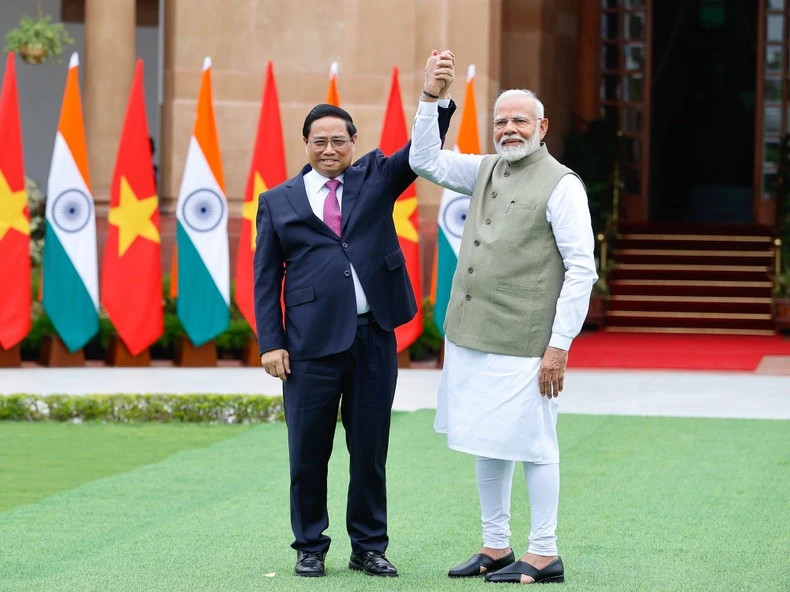
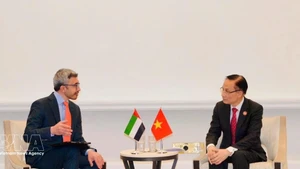
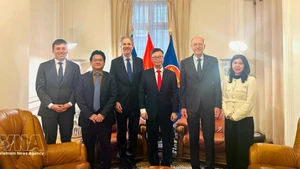
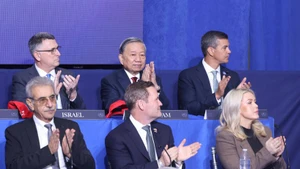
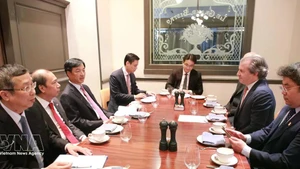
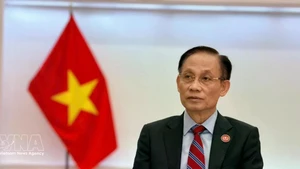
![[In pictures] Party General Secretary To Lam meets US President Donald Trump](https://en-cdn.nhandan.vn/images/dcd63867a0eed4c7753eb4bfb346593abc1ce710dfab8ad1b9aebd75ea6bf930b2ea13e4664779d689ba40aadd80f76d5d05d1208720fd7b0d811ace3a3297321c78cf738400e136e3f2d8790b24d43646e46edbe19517144a88f6ffb0d528f153574a7109328cc0949e4a4c16433c2ff751541639eefe4490518227264cbf8e/vna-potal-tong-bi-thu-to-lam-gap-tong-thong-hoa-ky-donald-trump-8599945.jpg.webp)
